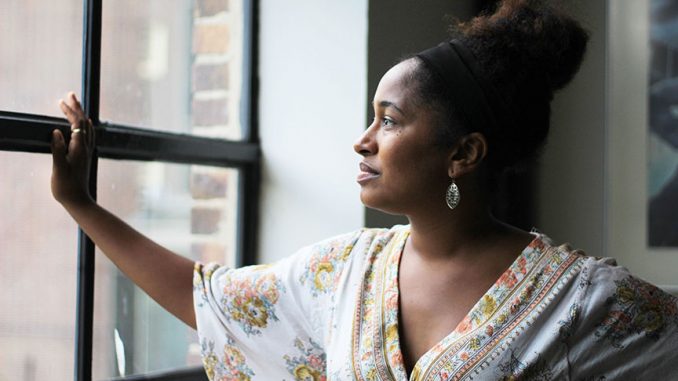
Seventy-four seconds passed between the time Officer Jeronimo Yanez pulled 32-year-old Philando Castile over and fatally shot him five times in July 2016.
After hearing about the incident in St. Anthony, Minnesota, Philadelphia playwright Kash Goins felt haunted. Soon, he began crafting a script for his newest play “Seventy IV Seconds… to judgment.” It will play at the Arden Theatre from Wednesday to Sept. 26.
The play is the second in a series of works by Goins that look at the United States justice system from an African-American perspective. The first work, “V to X,” examined the way laws are applied and enforced, enabling mass incarceration in for-profit prisons.
When 2003 master’s of acting alumna and acting and musical theater professor Amina Robinson was offered a job directing “Seventy IV Seconds,” she had no idea what was in store.
Initially, Goins told Robinson she would be directing a production of “12 Angry Men,” a 1950s movie about a deadlocked jury. She soon found out that Goins had written an original piece — one that questions the U.S. justice system.
AMINA ROBINSON
“SEVENTY IV SECONDS” DIRECTOR
“He said, ‘Oh yeah, and I’m actually writing a piece.’ He had a completely new piece of theater,” Robinson said.
“Seventy IV Seconds” follows the story of six jurors deadlocked on a second-degree murder case. In the fictitious case, an officer stopped a driver and his mother. Shortly after an altercation, the mother is fatally shot.
“It speaks to how quickly we are able to pass judgment and make life-altering decisions,” she said. “It speaks to ingrained biases that we hold. … It questions the fairness of our justice system.”
The piece “touches on a really timely subject,” Robinson added.
She said that during the rehearsal process, topics would often pop up that she could “relate to things that were on the news yesterday.”
Robinson said the timeliness of the play made it “easier for the actors to connect” to the material, and also challenged actors to confront their own internal biases.
Robinson said working on the production allowed her to use her platform to promote change.
“I think a lot of times we sit down, and sort of feel helpless and wonder what we can do,” she said. “This moment is allowing me to feel like an advocate of change.”
Goins was influenced by incidents similar to the police shooting of Castile while writing the play, including the deaths of Trayvon Martin, Michael Brown and Eric Garner, he said.
“The most potent motivator” was the story of Kalief Browder, Goins said. Browder spent three years on Rikers Island, a maximum security prison, without being convicted of a crime. He endured nearly two years of solitary confinement, as well as the abuse of both officers and inmates. He committed suicide years after his release.

But the murder of Castile haunted Goins “even a little deeper,“ he said.
In November, Yanez, who shot Castile while his girlfriend and her daughter were in the car, was charged with three felonies. In June, he was acquitted of all charges.
Goins said he wants to leave the audience asking big questions.
“Why can a life-taking event occur between two strangers in a minute or so?” Goins said. “Why can jurors see evidence that suggests that a crime has occurred and return a verdict of not guilty?”
Robinson hopes the show will motivate audiences to take a fresh look at the justice system and explore their own biases.
“It takes effort to dismantle the system we are living under. And that’s not something that can happen with complacency on anyone’s part,” she said.
“I think that the current state of our country is directly tied to people’s inability or lack of willingness to talk to one another,” Goins said. “I want people who wouldn’t normally talk to each other to do just that.”


Be the first to comment